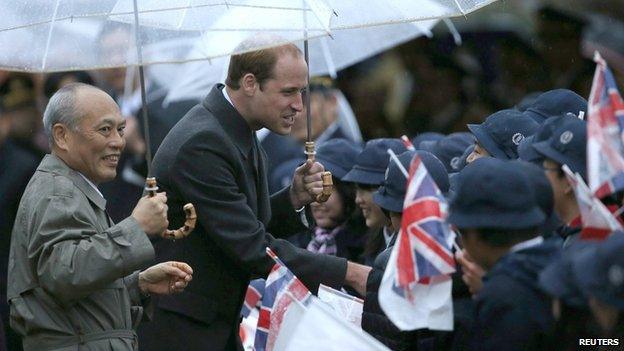Prince William remembers Commonwealth war dead in Japan
- Published
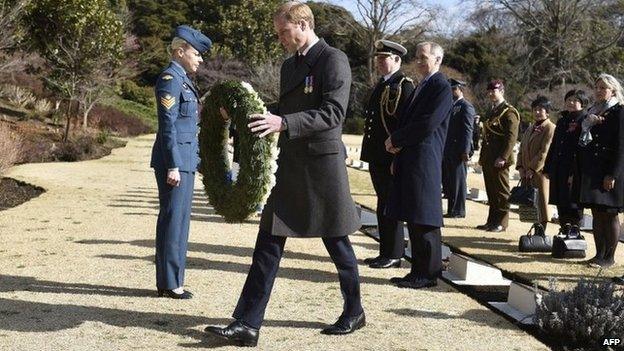
The Duke of Cambridge has laid a wreath to commemorate the Commonwealth war dead at Japan's Yokohama War Cemetery.
The floral tribute of chrysanthemums included a note written by the duke.
Prince William is on a week-long trip to China and Japan where he will undertake engagements to promote UK relations with both countries.
He concluded his cemetery visit by signing a visitors' book, which had been placed next to a photograph of his mother, Diana, Princess of Wales.
She was pictured laying a wreath at the same cemetery in 1995.
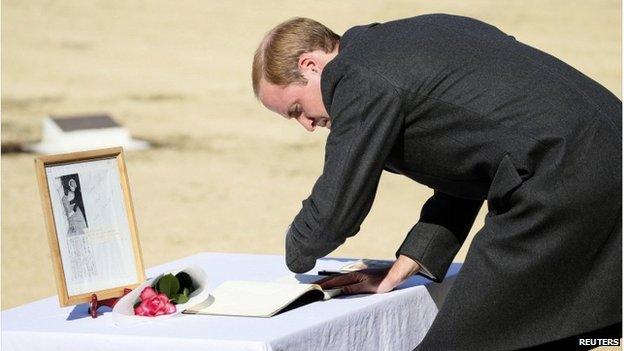
Prince William signed a visitors' book at the cemetery, next to a photograph of his mother
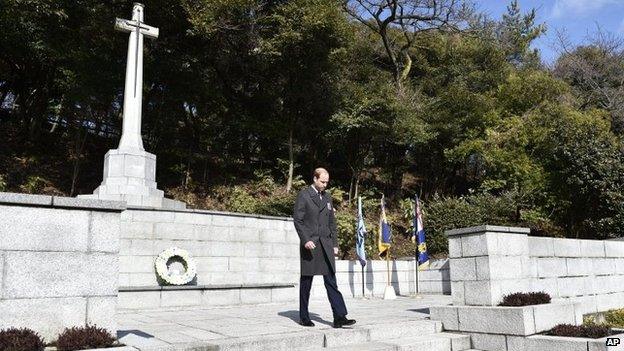
The wreath laid by Prince William contained his handwritten note
The note on the wreath laid by the duke said: "May we never forget all those who paid the ultimate sacrifice for our freedom."
Later the prince met fellow royals Emperor Akihito and Empress Michiko at the Imperial Palace.
He told the emperor, whom he last met in 2012 during the Queen's Diamond Jubilee Sovereign Monarchs' lunch: "Your majesty, it's very nice to see you again. Thank you for having me here - fantastic."

At the scene
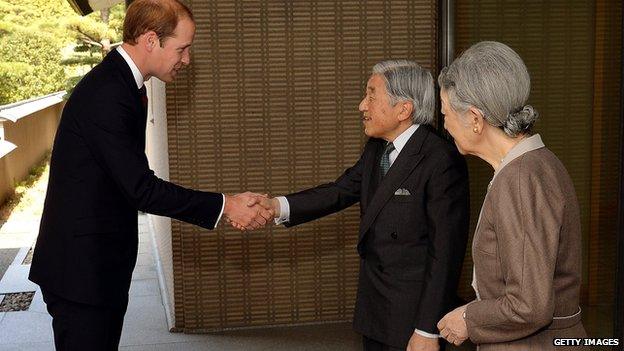
By Peter Hunt, BBC News royal correspondent, in Tokyo
When Prince William met Emperor Akihito it was an encounter between the representatives of one ancient institution and of another, which is even more ancient.
Japan's imperial family is the world's oldest continuous hereditary monarchy.
The latest incumbent of the Chrysanthemum throne is just an emperor. Previous Japanese monarchs had the status of living gods - something William's family would probably have found attractive during their difficult times in the 1980s and 1990s.
In these more settled times for the House of Windsor, the prince is in Tokyo promoting British government interests.
Born to be king, one day - as things stand - William confided in an audience about an alternative career plan if destiny wasn't in play.
He said, as a child, he'd dreamt of becoming an astronaut and flirted with the idea of being either a policeman or a fire breather.
Read more from Peter on his correspondent's page.

The duke began his four-day visit to Japan on Thursday by taking part in a traditional tea ceremony in the capital Tokyo.
In what is his first visit to the country, he also took a speedboat ride to Tokyo Bay, which will host much of the 2020 Summer Olympics.
The last time a major member of Britain's royal family visited Japan was in 2008 when the duke's father, Prince Charles, came with his wife Camilla.
The Duchess of Cambridge is not with her husband as she is due to give birth to their second child in April.
On the first day of his tour Prince William visited the Nakajima tea house, built 350 years ago in Japan's Edo period, in the middle of a small lake within the Hama Rikyu gardens.
Dr Genshitsu Sen, who is 92 and the 15th generation of his family to hold a senior role in the spiritual art of tea making, performed the traditional ceremony.
He also made tea for Prince William's parents, Prince Charles and Princess Diana, when they visited Kyoto in 1986.
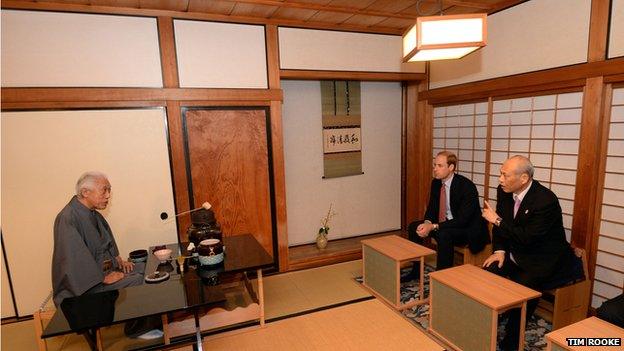
Prince William attended a tea ceremony by Dr Genshitsu Sen, who once performed it for his parents
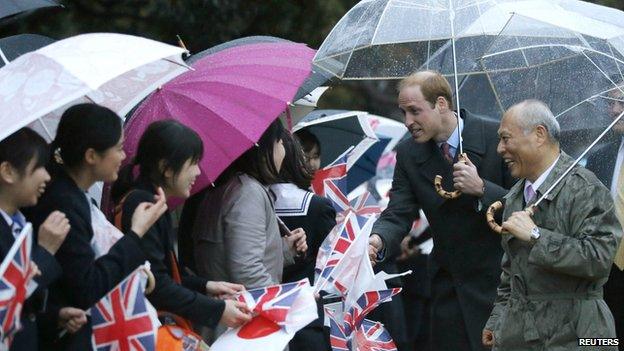
The Duke of Cambridge was greeted by students at Hama Rikyu Gardens
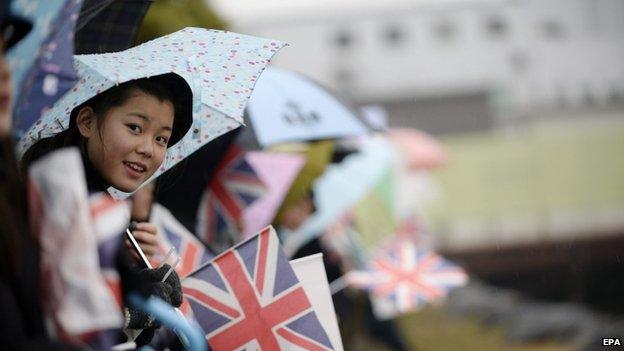
During his trip, the duke is also due to be taken to the areas devastated by the 2011 tsunami and meet survivors.
In China on Monday, he will launch the three-day Great Festival of Creativity at Shanghai's Long Museum.
It will promote British commercial creativity and innovation to a business audience from the UK, China and beyond, with the aim of creating opportunities for UK companies wanting to expand their markets.
Further highlights of the Far East trip will include a visit to Beijing's Forbidden City.
The duke is also hoping to see Asian elephants in the wild during his visit to China. He has campaigned to end the illegal trade in ivory and other endangered animal products, and will travel to the Yunnan Province next Wednesday where 250 wild Asian elephants still roam free.
On Friday China announced a one-year ban on ivory imports from Africa, with immediate effect.
BBC Shanghai correspondent John Sudworth said: "The timing is probably not a coincidence, coming just a few days before the arrival of Prince William, now one of the leading figureheads in the campaign to save the African elephant."
He said campaigners had criticised the move as "window dressing" however, claiming a complete ban on the ivory trade was necessary.
- Published26 February 2015
